
Security hole on Twitter.com exploited, links forced on mouseover
Though Twitter recently launched a newly redesigned site, users of the popular microblog are advised to use only third-party Twitter clients Tuesday morning to avoid a newly-exploited security hole.
The hole comes from the onMouseOver JavaScript code, which lets websites launch in your browser simply by mousing over a link in your Twitter feed. So far, the flaw has been used to redirect users to third-party sites, to pop up unwanted messages, and to have messages retweet themselves.

Microsoft expands Zune's international presence before Windows Phone 7
Microsoft Monday announced that it will be launching its "Multi-screen" Zune services in new international markets this fall. The expansion will bring the free Zune software version 4.7, Zune Marketplace with non-DRM MP3 and video downloads and movie rentals, and the Zune Pass subscription service to a total of 20 countries.
Only the UK and France will be open to all of these features, and the rest will vary between countries.

Google introduces two-step authentication for Apps product
Google on Monday announced that it would offer a two-step security option to certain customers of its Google Apps product, aiming to offer its customers a low cost option for higher security. The new authentication system would combine the traditional password with a verification code sent to the user's mobile phone.
Initially the offering would be available to English users of its Premier, Education and Government editions, with Standard edition customers getting the feature in the coming months. Google wants to ensure they can scale the feature reliability before expanding it to the "hundreds of millions" using the free version.

Bottom Line: There are already 70 million+ "Facebook Phone" users
This weekend, TechCrunch reported that popular social networking site Facebook was secretly creating its own branded mobile phone, and that executives Joe Hewitt and Matthew Papakipos were working on the project under the radar of most of Facebook's staff.
The report was quickly followed by a statement from Facebook denying the allegations:
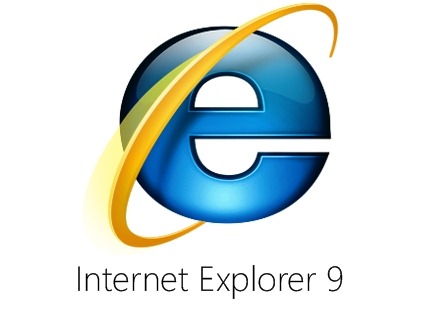
IE9 will leave a significant portion of Windows users behind
If Microsoft wants to build market share for its latest version of its Internet Explorer browser, that may be all but impossible. The company has decided to make IE9 incompatible with Windows XP, as it lacks the necessary technologies to power the new browser.
According to research firm NetApplications, nearly 61 percent of all computers run Windows XP as of August. Windows Vista and Windows 7, both IE9 compatible, make up about 30 percent. In other words, seven in 10 PCs are incompatible right out of the box, a major problem for Microsoft.
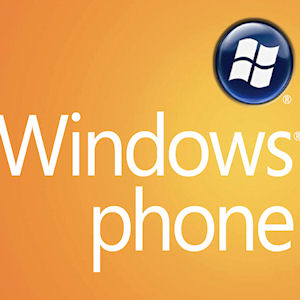
Microsoft: Windows Phone 7 will be GSM-only until 2011
Microsoft said this week that it would not have a version of its upcoming Windows Phone 7 operating system compatible with the CDMA standard at launch. Product manager Greg Sullivan told the Wall Street Journal that the company had decided to focus on GSM initially.
While CDMA is quite popular in the US, and is used by three of the top five carriers in the country, GSM is by far the dominant standard worldwide. Microsoft's decision would likely suppress US sales initially given the market share for GSM here is considerably lower than in other countries.
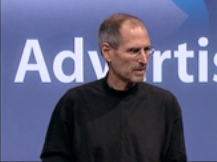
Yahoo CEO: Apple's policies will cause iAd to 'fall apart'
Yahoo's outspoken CEO Carol Bartz told Reuters in an interview posted late Wednesday that Apple's desire to control the advertising over its iAd mobile advertising service would cause it to "fall apart."
"Advertisers are not going to have that type of control over them," she said of the Cupertino company's policies. "Apple wants total control over those ads." Although it wasn't specified, her comments likely stemmed from reports that Apple was exerting some creative control over ads submitted to run on its service.

Three 100+ MPG cars claim $10 million X Prize
Thursday, the winners of the $10 million Progressive Insurance Automotive X Prize were announced at a special ceremony at the Historical Society in Washington DC. The ten million dollar contest challenged 111 teams to create a clean, production-capable vehicle that could exceed 100 miles per gallon or its energy equivalent (MPGe).
The ten million dollar prize today was divided among three vehicle classes: $5 million for mainstream, and $2.5 million each for alternative side-by side, and alternative tandem.

Motorola co-CEO says company will release a tablet in 2011
The tablet PC sector is heating up, and soon Motorola will be joining the fray. Its co-CEO Sanjay Jha told attendees of a technology conference sponsored by Deustche Bank that his company plans to sell a tablet beginning sometime in 2011. Motorola isn't in a rush to bring the product to the market: it would only do so when it can assure the device could be competitive.
Apple's iPad currently dominates the market, but manufacturers in recent months have shown an interest in developing their own tablets as it appears there is now a sustainable market for them.
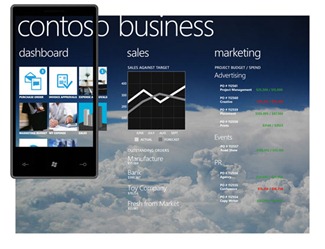
Microsoft releases final Windows Phone 7 developer tools, shows off launch apps
Windows Phone 7 is only a matter of weeks away, and Microsoft signified this by releasing the final version of the Windows Phone 7 Developer toolkit today.
This final version will let developers bring their applications up to speed for release in the Windows Phone Marketplace which will open in early October, and it also includes the Mobile Advertising SDK for app monetization, and the Bing Maps Control SDK for integrating Microsoft's mobile mapping data, as well as 'Metro' UI design control elements called Panorama (which stretches information out beyond the screen edges) and Pivot (which lets users arrange visual data in different ways.)

Can IE9 bring back Microsoft's glory days?
That's a question for you to answer. Not analysts. Not armchair pundits. Not me. But you. Internet Explorer 9 beta is the most significant Microsoft browser release since IE3 launched in August 1996. IE9 is streamlined like no Microsoft browser before it, radically departing from recent versions' more cluttered interfaces. Microsoft also is touting IE9's adherence to Web standards, which is a trend among all major browser developers. Somebody pinch me: Wasn't IE3 the first browser supporting CSS (even if only partially), something Microsoft is big-time promoting for IE9?
I want to essentially crowdsource my IE9 beta review, putting Betanews readers' reaction in front. If you've downloaded IE9 beta, please share in comments or by e-mail (joewilcox at gmail dot com) your reactions and assessments of the browser. Some readers regularly bitch about my writing style. Fine. Shut up and put up. Your responses will be my IE9 review. If you don't like how I write, then instead of complaining you should tap, tap, tap the keyboard and post your IE9 reaction in comments or by email. I would prefer to identify responders by real name rather than something like fglpss. Please email, even if you comment.

Halo: Reach soundly beats Halo 3 first-day sales records
Halo: Reach, the latest installment in Microsoft's wildly popular video game franchise, is proving to be the fastest-moving title in the series yet, Microsoft said on Wednesday.
In the first 24 hours that Halo: Reach has been available, it has pulled in more than $200 million in sales in the US and Europe, making it the fastest-selling game Microsoft has ever released.
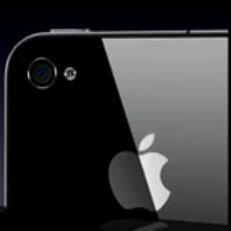
Apple announces printing from iPad and iPhone as developers get iOS 4.2 beta
In addition to releasing the iOS 4.2 beta to registered Apple developers, Apple on Wednesday announced AirPrint wi-fi printing functionality that will be soon coming to consumers.
"AirPrint is Apple's powerful new printing architecture that matches the simplicity of iOS--no set up, no configuration, no printer drivers and no software to download," said Apple's senior vice president of Worldwide Product Marketing, Philip Schiller in a statement Wednesday. "iPad, iPhone and iPod touch users can simply tap to print their documents or photos wirelessly to an HP ePrint printer or to a printer shared on a Mac or PC."
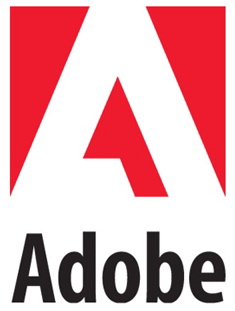
Adobe launches 'Square' Flash Player preview, adds IE9 & 64-bit OS support
Coinciding with Microsoft's launch of the Internet Explorer 9 beta, Adobe today rolled out a preview version of a new Flash Player it's calling "Square."
Because of the hot demand for a native 64-bit Flash Player, Square adds to the existent Linux 64-bit version by offering support for both Windows and Mac OS. Adobe says users of the previous 64-bit Flash Player for Linux will find this version to be faster and more reliable.

Believe me when I say that Consumer Reports is WRONG about iPhone 4
Now that I'm comfortably satisfied with iPhone 4, it's time for a quick review -- and big whack against Consumer Reports, which has once again disavowed a smartphone its editors highly ranked. This morning, Instapaper creator and Tumblr developer Maro Arment tweeted: "Consumer Reports got hooked on inflammatory Apple traffic." I thoroughly agree. The only Death Grip remaining is Consumer Reports clutching to pageviews and trying to save face, which the organization really lost by rating iPhone higher than other smartphones but later giving a no-recommendation.
Apple's newest handset is the first I enthusiastically recommend -- that after dissing the first-three generation models; I found the number of dropped calls to be unacceptable and, more importantly, battery life to be inadequate to support the functions. In stark contrast, calling experience is superb on iPhone 4, by every measure. No longer am I having calling problems -- dropped or failed connections -- anywhere in the San Diego, Calif. area.